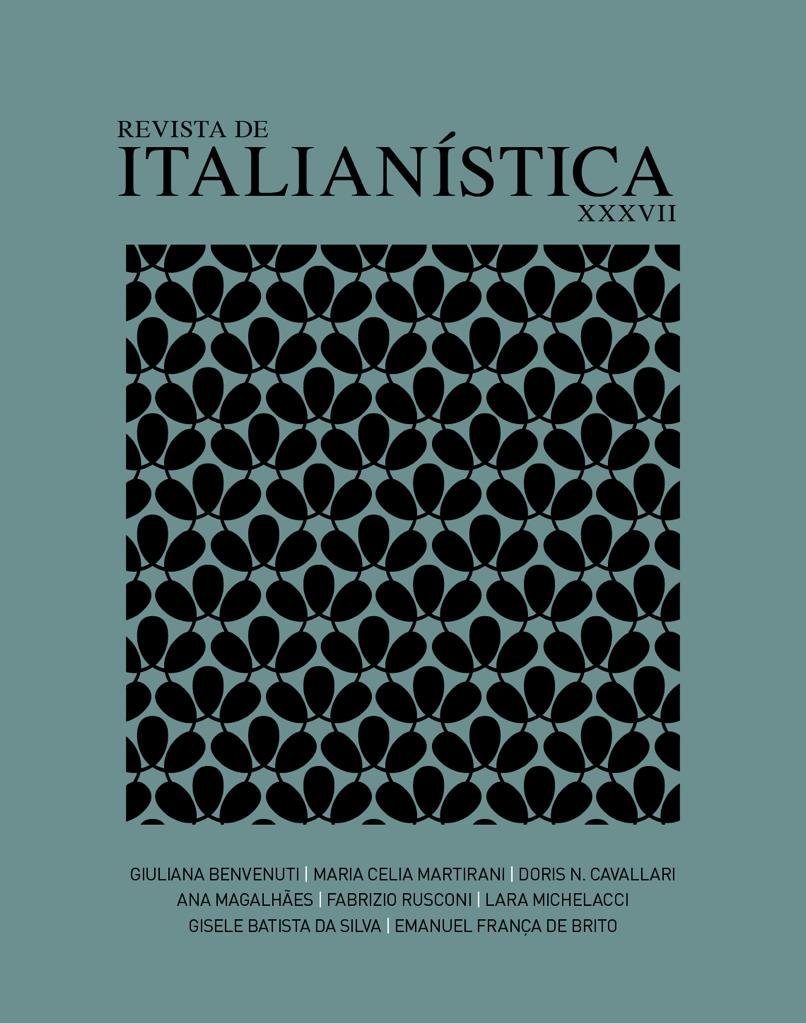The immigrant voice: an analysis of Daniele Gaglianone’s film La mia classe
DOI:
https://doi.org/10.11606/issn.2238-8281.v0i37p17-27Keywords:
Italian migration cinema, Daniele Gaglianone, Docufiction, Representation crisisAbstract
Daniele Gaglianone’s film La mia classe can be inserted in the Italian film tradition of the so-called “migration films”, because it aligns with those who seek to represent the dramatic situation of those who need to reinvent themselves in foreign land. It is a work that points the camera to the clandestine world of immigration, letting it speak. The protagonists are all amateurs, not professionals and self-represent, except for Valerio Mastandrea, who plays the role of a teacher-volunteer of an Italian language class for immigrants.There are many topics in La mia classe dealing with the tragedy of the journey, the trauma of family separation, the loss of identity and the sense of non-be- longing common to contemporary diasporas. But the merit of the film is much more in its formal than thematic proposal. Its strength resides precisely in the hybrid zone between documentary and fiction: “docufiction” (NICHOLS, 2014), problematizing the levels of representation of the real (JAMESON), in a metacinematographic perspective, in which the cinema reflects on the scope and limitations of the art itself make movies.
Downloads
References
AGIS SCUOLA. Schede film: La mia classe, c2014. Disponível em: https://agiscuola.it/schede-film/item/353-la-mia-classe.html. Acesso em: 05/03/2017.
GAGLIANONE, D. La mia classe [dvd]. Italia: Axelotil Film & Kimera film Relief com RaiCinema,2013, em cores; 95 min.; Direção: Daniele Gaglianone; Roteiro: Gino Clemente, Daniele Gaglianone, Claudia Russo. Elenco: Valerio Mastandrea, Bassirou Ballde, Mamon Bhuiyan, Gregorio Cabral, Jessica Canahuire Laura.
JAMESON, F. As marcas do visível. Trad: Ana Lúcia de Almeida Gazolla, João Roberto Martins Filho, Klauss Brandini Gerhardt, Marcos Soares, Neide Aparecida Silva, Regina Thompson, Roneide Venancio Majer. Rio de Janeiro: Graal, 1995, p.162.
MARSHALL, L. Una lezione per tutti. Internazionale. Sezione Cultura, Roma, no 1034, 17-23 gennaio 2014, p. 70-71. Disponível em: http://http://blog.mondodigitale.org/wpcontent/uploads/2014/01/Laclasseinternazionale.pdf. Acesso: 05/03/2017.
NICHOLS, B. Introdução ao documentário. Trad. Mônica Saddy Martins. Campinas: Papirus, 2014.
SALOMÃO, P. E. P. O paradoxo do realismo no cinema contemporâneo. In: Digitarama, Revista Acadêmica de Cinema. Rio de Janeiro, no 4, jan-jul 2007, s/p. Disponível em: em: http://www.estacio.br/graduacao/ cinema/ digitagrama/ numero4/pedroeduardo.asp. Acesso: 06/07/2016.
STAM, R. Introdução à teoria do cinema. Trad. Fernando Mascarello. Campinas: Papirus, 2015.
Downloads
Published
Issue
Section
License
Copyright (c) 2018 Revista de Italianística

This work is licensed under a Creative Commons Attribution-NonCommercial-NoDerivatives 4.0 International License.
A revista retém os direitos patrimoniais dos artigos e os publica simultâneamente sob uma Licença Creative Commons-Atribuição-Não Comercial-Sem Derivações.



